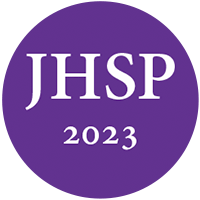The professional home for health service psychologists.
Join a community of 15,000 psychologists and trainees.
Learn it today. Apply it tomorrow.
Connecting you to what you need in your career.
Making a difference.
Ketterer, M. W. (2019). Prevention of early readmissions in the chronically medically ill patient. Journal of Health Service Psychology, 45, 23–27.
Avoidable early hospital readmissions (30 days or fewer) in chronically medically ill patients have become a matter of importance in the U.S. healthcare system. Unexplained hospital-to-hospital variability wastes financial resources, results in Medicare/Medicaid penalties, and causes poor medical outcomes (including elevated death rates). The primary cause of this problem appears to be inadequate discharge preparation/planning. Behavioral factors, most commonly unrecognized cognitive impairment, play a significant role in early readmissions and may lead to dysadherence. Careful evaluation of psychological factors can enhance identification of the cognitively impaired patient, and permit psychoeducation of the patient/family to avoid future medical crises.
Registrants can read the full article on CE.NationalRegister.org.
Agarwal KS, Kazim R, Xu J, Borson S & Taffet GE. (2016). Unrecognized cognitive impairment and its effect on heart failure readmissions of elderly patients. Journal of the American Geriatric Society, 64, 2296-2301.
Blumenthal D, Stremikis K & Cutler D. (2013). Health care spending – a giant slain or sleeping? New England Journal of Medicine, 369(26), 2551-2557.
Borson S, Scanlon JM, Chen P & Ganguli M. (2003). The mini-cog as a screen for dementia: validation in a population-based sample. Journal of the American Geriatric Society, 51(10), 1451-1454.
Cameron J, Worrall-Carter L, Page K, Riegel B, Lo SK & Stewart S. (2010). Does cognitive impairment predict poor self-care in patients with heart failure? Europeon Journal of Heart Failure, 12, 508-515.
Caplan J. (2018). Delirious patients. In TA Stern, O Freudenreich, FA Smith, GL Frichione & JF Rosenbaum (Eds.). Massachusetts General Hospital Handbook of General Hospital Psychiatry. New York City: Elsevier. pp. 83-94.
Choudry NK, Isaac T, Lauffenburger JC, Gopalakrishnan C, Lee M, Vachon A, … Solomon DH, Sequist TD. (2018). Effect of a remotely delivered tailored multicomponent approach to enhance medication taking for patients with hyperlipidemia, hypertension and diabetes: The STIC2IT Cluster Randomized clinical trial. JAMA Internal Medicine, 178(9), 1182-1189.
Dielemen JL, Squires E, Bui AL, Campbell M, Chapin A, Hamavid H, … & Murray CJL. (2017). Factors associated with increases in us health care spending, 1996-2013. Journal of the American Medical Association, 318(17), 1668-1678.
Fuchs VR. (2014). Critiquing US Health Care. Journal of the American Medical Association 312(20), 2095-2096.
James JT. (2013). A new, evidence-based estimate of patient harms associated with hospital care. Journal of Patient Safety 9(3), 122-128.
Jasinski MJ, Lumley MA, Soman S, Yee J & Ketterer MW. (2017). Indicators of cognitive impairment from a medical record review: correlations with early (30-day) readmissions among hospitalized patients in a nephrology unit. Psychosomatics, 58, 173-179.
Jasinski MJ, Lumley MA, Soman SS, Yee J & Ketterer MW. (2016a). Cognitive impairment (ci) in patients with esrd and family psychoeducation for reducing readmissions: preliminary results from a randomized clinical trial. Journal of the American Society of Nephrology, 27(Kidney Week Abstract Edition), 11A.
Ketterer MW, Alaali Y, Yessayan L & Jennings J. (2016b), “Alert and Oriented x 3”? Correlates of mini-cog performance in a post/non-delirious intensive care unit sample. Psychosomatics, 57, 194-199.
Ketterer MW, Chawa M & Paone G. (2017). Prospective correlates of early (30 day) readmissions on a cardiothoracic service. Psychology, Health & Medicine, 22(8), 947-954.
Ketterer MW, Draus C, McCord J, Mossallam U & Hudson M. (2014a). Behavioral factors and hospital admissions/readmissions in patients with chf. Psychosomatics, 55, 45-50.
Ketterer MW & Mahr G. (2016). Evidence-based treatment of emotional distress In patients with ischemic coronary heart disease. Psychiatric Annals 46(12): 677-682.
Ketterer MW, Peltzer J, Mossallam U, Draus C, Schairer J, Rabbani B, … & McCord J. (2016a). Cognitive impairment and reduced early readmissions in congestive heart failure? American Journal of Accountable Care, 3(16), e1-e6.
Ketterer MW, Soman S & Mossallam U. (2014b). Psychosocial risk factors and admissions/readmissions in end stage renal disease patients. Journal of Behavioral Health, 3(4):230-233.
Kim J-M, Stewart R, Lee Y-S, Lee H-J, Kim MC, Kim J-W … & Yoon J-S. (2018). Effect of escitalopram vs placebo treatment for depression on long-term cardiac outcomes in patients with acute coronary syndrome: a randomized clinical trail. Journal of the American Medical Association 320(4):350-358
Makary MA & Daniel M. (2016). Medical error – the third leading cause of death In the U.S. British Medical Journal, 353, i2139.
Melnick GA, Fonkych K & Zwanziger J (2018). Hospitals’ net revenue and billed charges for commercial payers per day in California, selected years 1995-2016. Health Affairs 37:1417-1424.
Obama B. (2016) United States health care reform: progress to date and next steps. Journal of the American Medical Association, 316(5), 525-532.
Patel A, Parikh R, Howell EH, Hsich E, Landers SH & Gorodeski EZ. (2015). Mini-cog performance: novel marker of post discharge risk among patients hospitalized for heart failure. Circulation, Heart Failure, 8:8-16.
Raymont V, Bingley W, Buchanon A, David AS, Hayward P, Wessely S & Hotopf M. (2004). Prevalence of mental incapacity in medical inpatients and associated risk factors: cross-sectional study. Lancet, 364(9443), 1421-1427.
Valcour VG, Masaki KH, Curb JD & Blanchette PL. (2000). The detection of dementia in the primary care setting. Archives of Internal Medicine, 160(19), 2964-2968.
Woolf SH & Aron L. (eds.) (2013). U.S. Health in International Perspective: Shorter Lives, Poorer Health. Washington, DC: National Academies Press.
Copyright © 2025 All rights reserved. National Register of Health Service Psychologists








